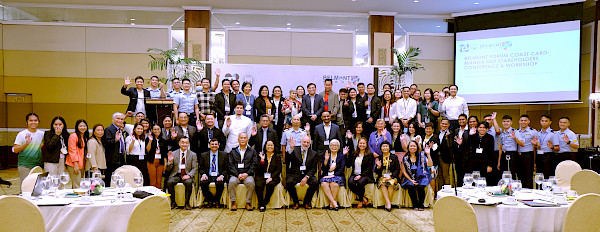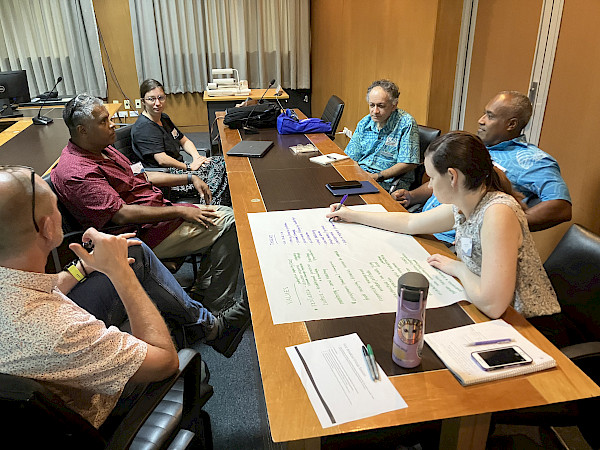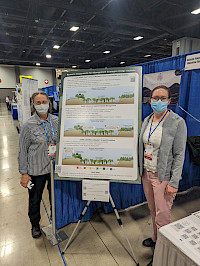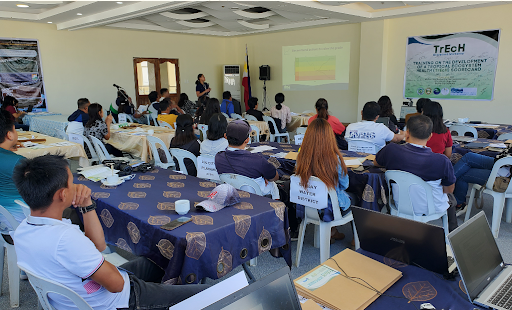First COAST Card workshop in Manila, Philippines

From February 26th to March 6th, members of the COAST Card team travelled to Manila Bay in the Philippines for the first in-person meeting of the project. This meeting brought together local stakeholders and scientists, as well as representatives from the project’s 4 international partners—Japan, India, Norway, and the United States. Over the course of the trip, project members gave talks, facilitated workshops, and engaged with the local community to begin development of the Manila Bay and Watershed Report Card. Field trips around the bay allowed project partners to experience this important area in the Philippines and see the characteristics of the bay that the team has been discussing virtually for the last two years. The team will be traveling to Tokyo Bay in November to continue its international site visits.
Second PACPATH workshop in Suva, Fiji

Last month, Annie Carew and Heath Kelsey traveled to Suva, the capital of Fiji, to facilitate the second workshop for the PACPATH project. This project brings together scientists and researchers from Europe, the U.S., and the South Pacific to define and examine the issues facing coastal communities in New Caledonia and Fiji. The first workshop in October focused on New Caledonia, while the second workshop focused on the issues facing Fiji. Workshop participants included government officials, researchers, traditional village leaders, and students. After three days of thorough discussion sessions in Suva, some workshop participants traveled up the coast to a writing retreat, where we had the unique opportunity to visit villages and a reef that is home to breeding dolphins. The PACPATH project is continuing work on New Caledonia and Fiji report cards, coming soon!
Paper Publication: the Role of Understanding, Trust, and Access in Public Engagement with Environmental Activities and Decision Making
Heath Kelsey co-authored a paper with colleagues from the University of South Carolina Arnold School of Public Health on the importance of communication and trust in community-based research. The study evaluates perceptions of academic investigators within the Center for Oceans and Human Health and Climate Change Interactions on science communication needs and the importance of trust with communities in which they work. The results will be used to improve training for investigators working with communities to address environmental science and public health concerns.
IAN and NPS at AAAS

IAN showcased our partnership with the National Park Service National Capital Region at American Association for the Advancement of Science Annual Meeting in Washington, DC from March 2–5. The NPS-IAN partnership perfectly meshes with the conference theme “Science for Humanity”—we use data collected in National Parks to inform management of these parks. This will ensure they are preserved for generations to come.
Tropical scorecard in central Philippines

At the end of February, Dr. Vanessa Vargas-Nguyen traveled to the Eastern Visayas region of central Philippines to help facilitate a training workshop on the Development of a Tropical Ecosystem Health (TrEcH) scorecard for the Pagbanganan River in Baybay, Leyte. The TrEcH project is funded through the internationalization program of the Visayas State University in partnership with the University of Maryland Center for Environmental Science and the University of the Philippines. The workshop was attended by over 40 officials from various barangays (villages) and government agencies in the region. At the end of the workshop, participants identified values and threats of the river basin, potential indicators that can be used in the report card, and other stakeholders that needed to be included in the process. The participants and organizers also expressed their commitment to the success of the project and to continue the collaboration.